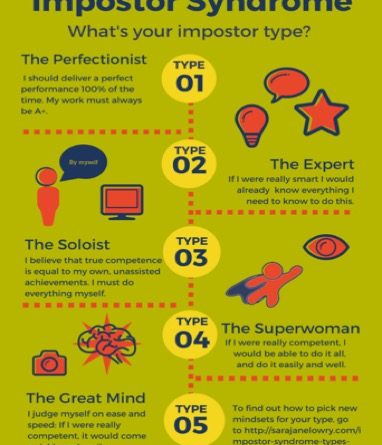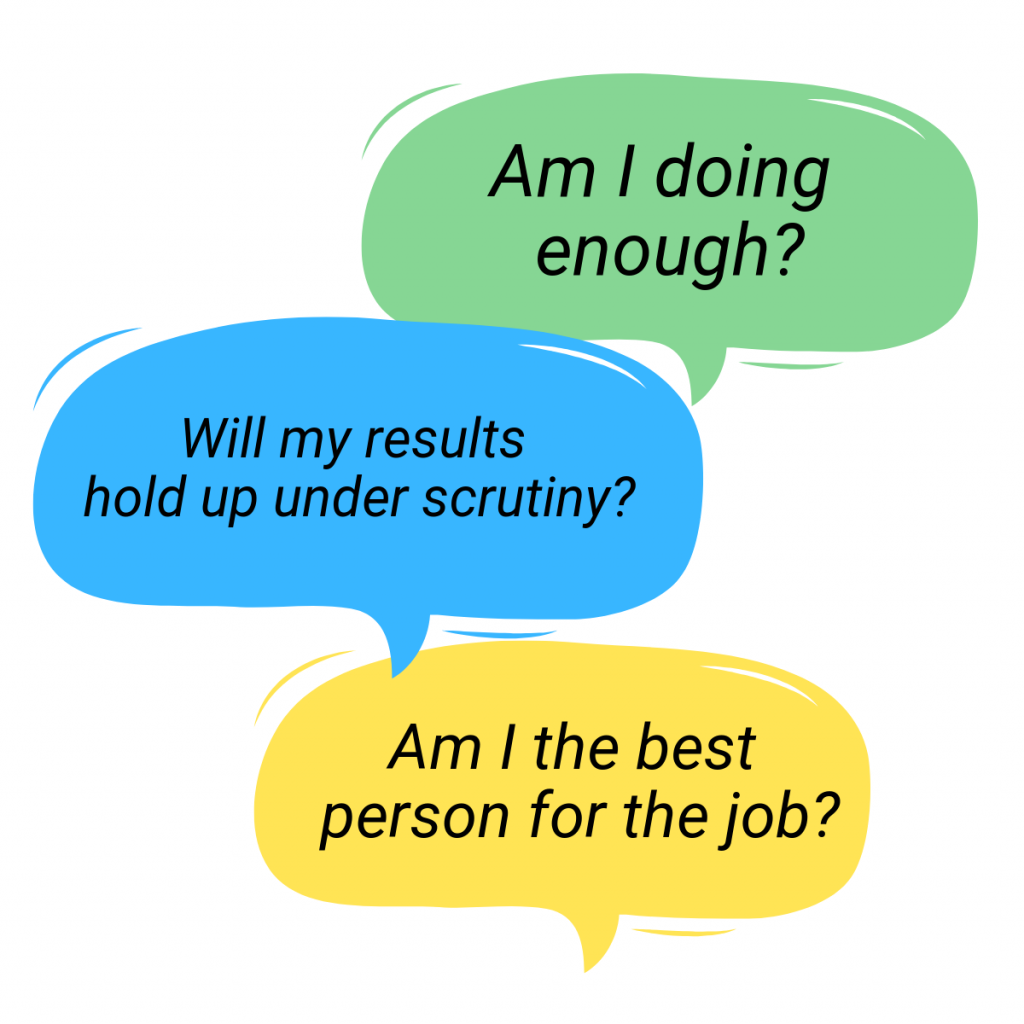Wednesday worry: Imposter syndrome by Tim Bergin
Am I really just an imposter?
by Tim Bergin, family law barrister
Recently, attending a legal meeting, I was struck by the sheer talent of many of those present. These were people who, without doubt, had reached the higher echelons of the legal tree and several were destined to receive a call from the Judicial Appointments Board in the not-to- distant future. What was I doing here with the likes of Mr Oxbridge QC and Ms Cantab QC, with their first-class honours and red bags etc? Surely, they are the ‘real-deal’ and somehow, I have managed to mingle in with their likes solely by accident. My lowly second-class honours from a lesser university will no doubt be outed and I will be exposed for what I really am…an imposter!
So, is this real?
Well, ‘Imposter Syndrome’ is a recognised psychological phenomenon which causes intense feelings of self-doubt to the extent where people feel that they are frauds. It can happen in both their personal as well as their professional lives, although it’s most frequently the latter. It can affect anyone, no matter how senior or successful.
The term originated from a study conducted in 1978, by Pauline Rose Clance & Suzanne Imes of Georgia State University, titled “The Imposter Phenomenon in High Achieving Women: Dynamics and Therapeutic Intervention. The study described imposter syndrome as a term used to “designate an internal experience of intellectual phonies”, noting that it appears to be common in successful women. It reads: “Despite outstanding academic and professional accomplishments, women who experience the imposter phenomenon persist in believing that they are really not bright and have fooled anyone who thinks otherwise.”
The initial view was that this phenomenon was known solely to women. However, studies have since emerged that suggest the opposite might be true, with a recent paper published in the journal Personality and Individual Differences claiming that under pressure, imposter syndrome may affect men more intensely than women due to sexist societal expectations placing greater expectations on men to perform.
This mentality is thought to be particularly common in younger people and a recent survey, found that a third of millennials suffer from ‘Imposter Syndrome’ at work, highlighting a severe lack of confidence affecting young people in the UK.
Symptoms associated with Imposter Syndrome include high levels of anxiety, doubting one’s achievements, frustration and low self-esteem.
Due to the intense feeling of phoney-ism, and in attempts to justify one’s status and existence, the temptation is to work harder and harder to measure up to our own expectations. But really, this is just a false cover for our own insecurities and the increase in workload may harm not only our own mental health, but also our relationships.
Here are some of the tell-tale signs that point to the insecurity which may suggest ‘Imposter Syndrome’! How many apply to you?
i) Do you stay later in chambers than most other people, even past the point that you’ve completed that day’s necessary work?
ii) Do you get stressed when you’re not working and find downtime completely wasteful?
iii) Have you left your hobbies and passions fall by the wayside, sacrificed to work?
iv) Do you feel like you haven’t truly earned your title (despite numerous degrees and achievements), so you feel pressed to work harder and longer than those around you to prove your
worth?
Recently, I found I was working longer and longer hours, not necessarily because I needed to, but more a feeling of wanting to! Twelve hours a day would on occasions rise to fourteen hours. No time for anything else! I was becoming an ‘Imposter-workaholic, addicted to the validation that came from working, not necessarily the work itself. But this ‘boast’ of intensive work load would become a badge of honour, a personal recognition that I was a true member of this ‘elite club’.
This of course, is unsustainable and will without doubt take its toll. In order to avoid the inevitable consequences of this excessive approach to work, one needs to steer away from external validation. No one should have more power to make you feel good about yourself than you, not even senior members of chambers or the judiciary. However, conversely it is important to learn to take constructive criticism seriously and not personally. As one becomes more attuned to internal validation and able to nurture
our inner confidence that states we’re competent and skilled, we will be able to ease off the gas and gauge how much work is reasonable.
How can you protect yourself?
In their study, Clance and Imes advise people battling with imposter syndrome to seek therapy as this might help identify where a person’s anxieties about themselves come from. In a blog post for
Psychology Today, professor and author Andy Molinksy suggests doing your best to change the negative perceptions you have of yourself and finding solace in the knowledge that your peers may be
experiencing similar doubts. “Next time you’re in a situation that feels completely outside your
comfort zone, don’t focus on your failures,” he adds. “Consider it your opportunity to learn from your missteps and to bring forth a new perspective that others may not have.”



